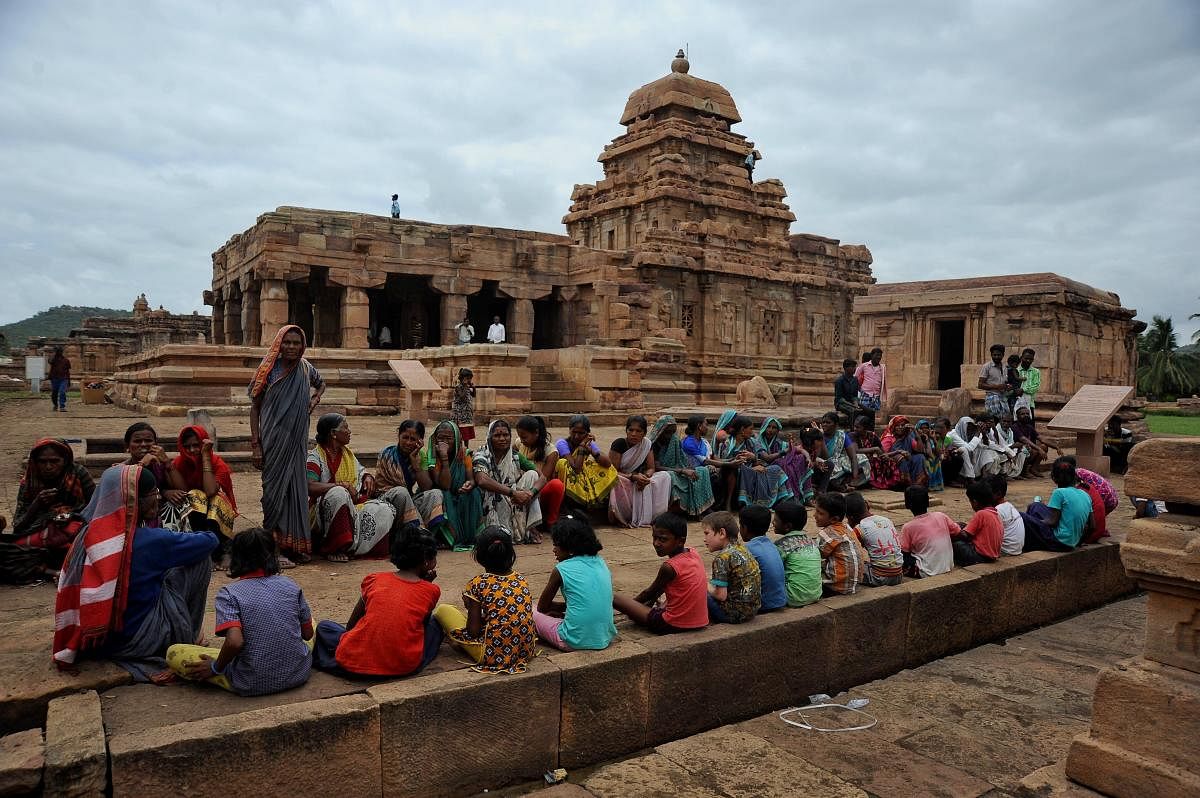
On an usual day, the exquisitely carved Sangameshwara temple in the Pattadakal temple complex would leave you speechless. But these are not normal days for the Unesco World Heritage Site.
Inside the temple, women are cooking, grains and other food items are piled against the pillars; urchins, tired after running around the premises, climb the roof of the temple with their staple jowar rotis: the temple has become a kitchen; a playground.
A little further, the famous Virupaksha temple is filled with mats and beds: it is an improvised bedroom.
The temples, located on the banks of the Malaprabha river, have now turned into a makeshift rescue centre for flood victims.
On August 8-9, the medieval architectural marvels built between 7th and 8th centuries under the Chalukya dynasty saved the lives of 274 people; the roof of the Sangameshwara temple was in fact the only safe refuge.
“We took refuge atop the temple for two days and one night before being rescued,” recalls Fakeerappa Sunkad. “If not for the temples, survival of more than 200 people would have been difficult.”
Underlining its importance, Mohanesh Badiger, another flood survivor, says it was one of the largest rescue operations.
Today, some vehicles carrying relief material enter the complex to distribute essentials. At the other end of the complex and away from the view, several cattle are also tethered as sheds have been washed away.
Pattadakal itself was flooded, but the Archaeological Survey of India (ASI) officials said there was no damage as the temples are made of sandstone. “At Aihole, water entered Lad Khan and Ambigara Gudi temples. There is still slush over there. But preliminary analysis shows that the structures are safe,” says an ASI conservation assistant.
In case damages are found when the temple complex is cleaned, a chemical analysis will be performed by experts to prevent further damage.
The temples, mercifully, will survive, but the Pattadakal village is in a shambles. Houses relatively closer to the river are no longer standing.
Mallamma, 70, says it was like an “earthquake”, looking at the decimated houses around her. Most of the 856 houses in the village are inhospitable following the deluge.
Bagalkot deputy commissioner R Ramachandran says residents staying inside the temple will be shifted. “There are relief camps around. We’ve convinced them to move from the heritage site,” he says.
